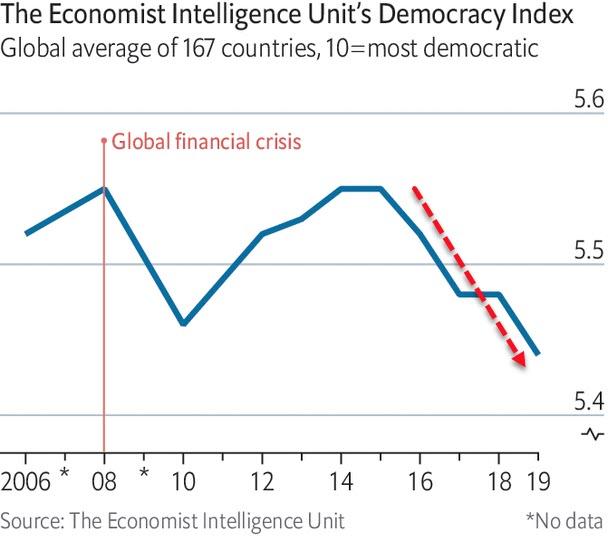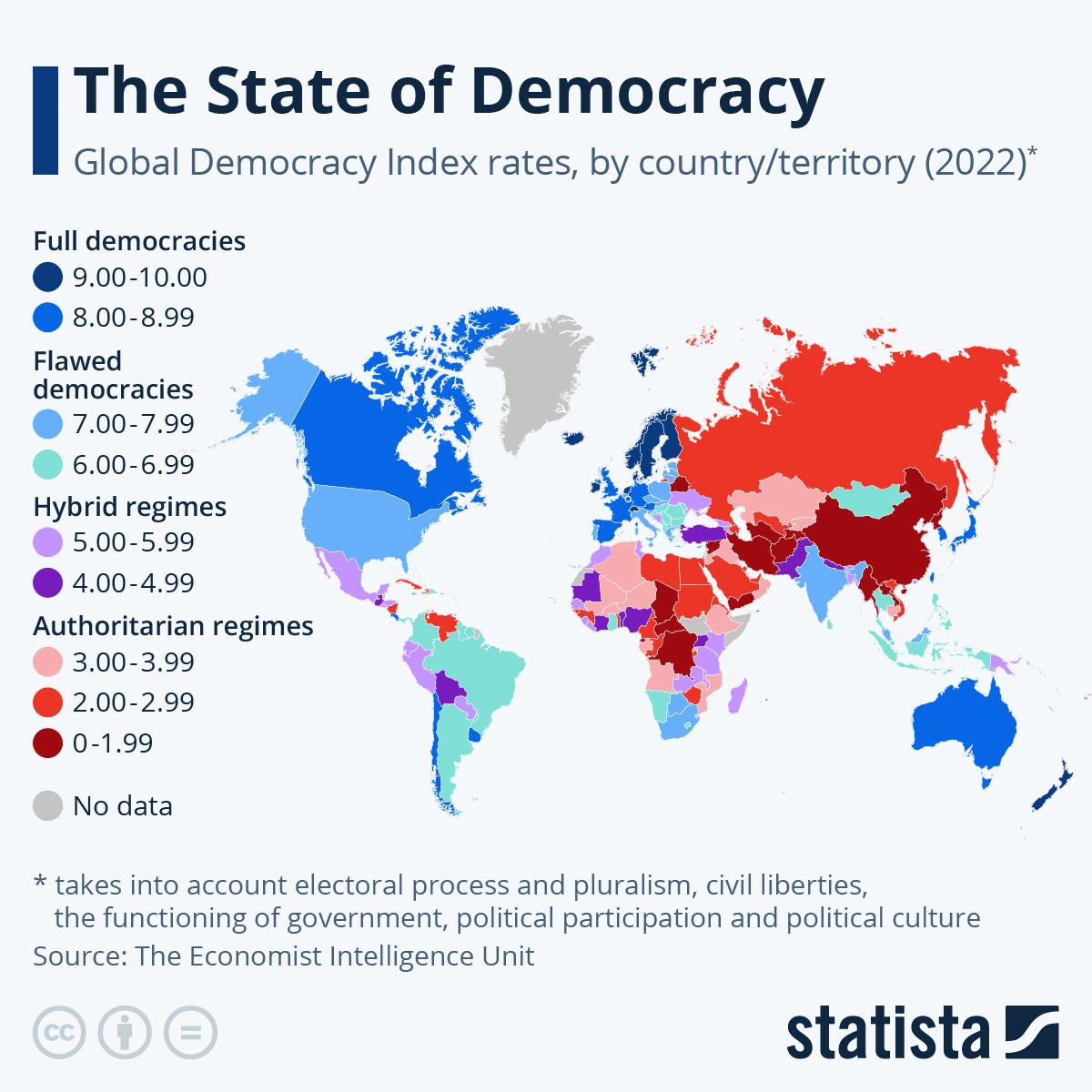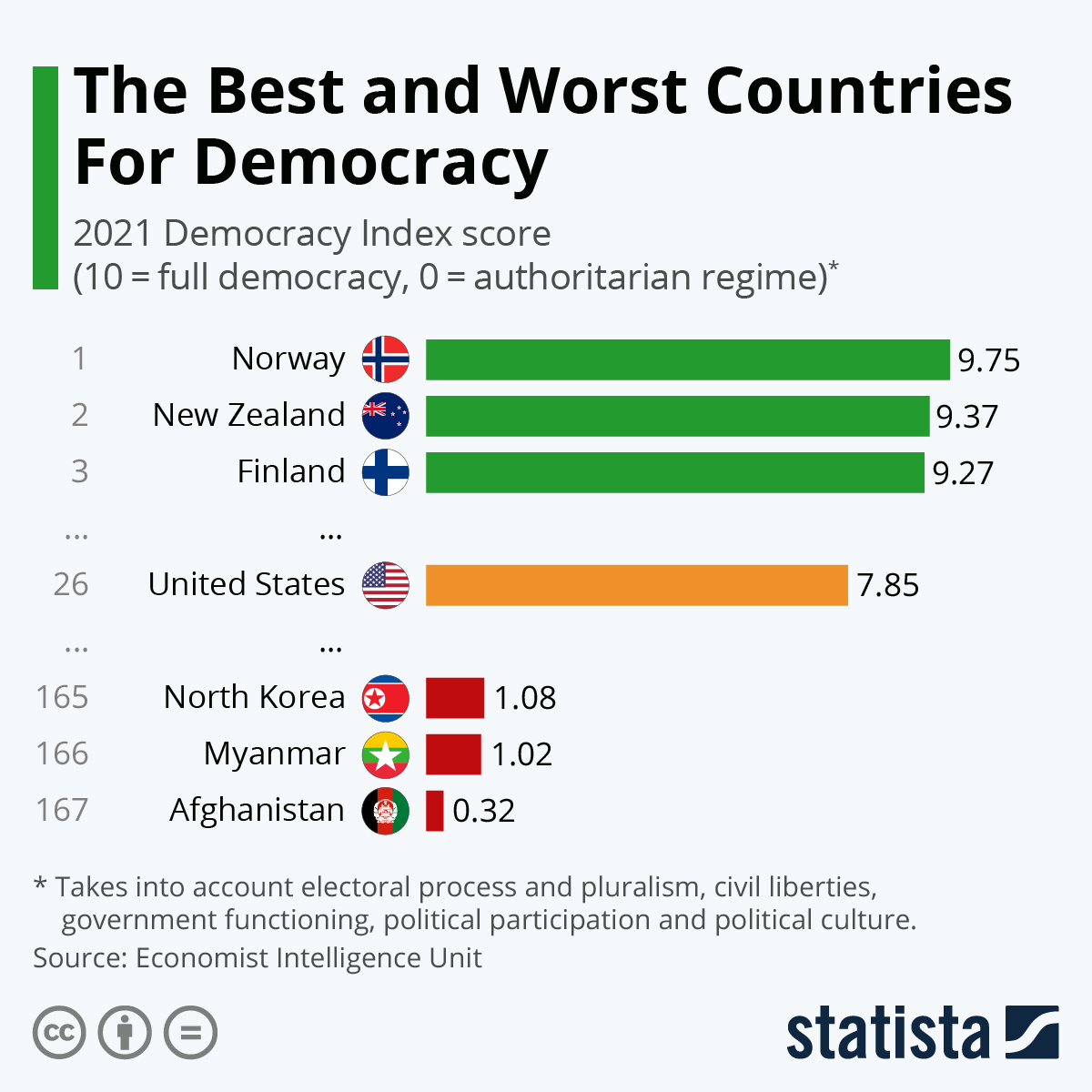The website Rubmaps describes itself as being devoted to “erotic massage parlor reviews & happy endings.” Users who pay for membership can write and read reviews of massage parlors. Some reviews are predictably racy, and some are, perhaps surprisingly, more PG-rated. The site lets clients know what to expect from massage parlors—and also what not to expect, offering clarity about which services are on offer and guidance about how to behave.
Increasingly, however, it also serves another purpose. Police have begun monitoring the site on the theory that, as a 2016 article in the magazine Prosecutor’s Brief asserted, a good Rubmaps review “indicates that the location is a brothel.” And when police and prosecutors take an interest, so do politicians.
Rubmaps entered the Congressional Record in March 2015, when Sen. Dianne Feinstein (D–Calif.) was speaking about the Justice for Victims of Trafficking Act. Feinstein cited Rubmaps as one of 19 sites that supposedly “act[ed] as purveyors of child sex trafficking in this country.” Those sites, she said, “ought to be ashamed of themselves.”
It was Feinstein who should have been ashamed. During her extensive remarks, she offered no solid evidence that these sites were in fact facilitating child sex trafficking. Yet her push to shutter them played directly into a social panic that has been building into a legal crusade against sex work and the web platforms that enable it. Within a few years, Rubmaps—then one of the lesser-known sites Feinstein mentioned—would become a key target in this dubious fight, aided by America’s long history of discriminatory opposition to massage businesses operated and staffed primarily by Asian immigrants.
People who coerce or force others into prostitution do exist, and violence against those involved in prostitution happens. Law enforcement should absolutely take these horrors seriously—especially if minors are involved. Yet government estimates of the prevalence of sex trafficking have tended to be wildly inflated and plagued with “methodological weaknesses, gaps in data, and numerical discrepancies,” as the Government Accountability Office put it. Known cases in the United States remain incredibly rare.
In 2015, for instance, U.S. attorneys received information on about 750 people suspected of either “peonage, slavery, forced labor or sex trafficking,” according to the Bureau of Justice Statistics. Yet they ultimately filed charges in just 395 of these cases.
Perhaps because of the scarcity of bona fide trafficking cases and disproportionate public interest in the topic, law enforcement agencies frequently go on fishing expeditions, searching for needles in a haystack and then arresting anyone in the vicinity of the barn.
The Wall Street Journal reported in September that agencies including the Department of Homeland Security and the Justice Department are investigating Rubmaps and two similar websites. Opponents argue these sites facilitate the sexual exploitation of girls and women. But authorities rarely turn up the horrific crimes they say they’re rooting out. Instead, the people most harmed by the attention from law enforcement are the ones cops and advocates claim they’re out to save.
Rubmaps’ emergence as a digital boogeyman corresponds with a nationwide legal assault on Asian massage parlors and the women who work at or own them. Recent high-profile examples—including the Palm Beach, Florida, investigation that ensnared New England Patriots owner Robert Kraft and the Queens, New York, raid that led to the death of Chinese immigrant Yang Song—highlight a wider phenomenon that plays out around the country on a weekly basis, a carceral charade in which the twisted “help” offered to “exploited” women includes jail, seized assets, and deportation.
These raids, which often overlap with America’s escalating crackdowns on unauthorized immigrants, frequently involve Homeland Security, Immigration and Customs Enforcement (ICE), and FBI agents. Federal law enforcement officials are being enlisted, in other words, to round up women for giving unapproved hand jobs or offering ordinary back and foot massages without the right paperwork.
In a throwback to shameful earlier episodes in U.S. history, these workers—mostly middle-aged Asian immigrant women—are treated as victims long enough to get authorities in the door and then as criminals once law enforcement officials are done playing hero to the press.
Once Upon a Time in Florida
The sting that nabbed Robert Kraft, the CEO of the Kraft Group and owner of the Patriots, on solicitation charges in February 2019 was a perfect storm of sex trafficking panic, xenophobia, prosecutorial showboating, and prurient interest. The bust was part of a monthslong investigation into massage parlors in and around Palm Beach County, Florida. Local police and prosecutors initially heralded it as part of a “human trafficking investigation” that would rescue victims and send a message to the men who patronized them. But it ultimately yielded no human trafficking charges, and the “rescued” women faced more severe criminal penalties than did their clients.
The inability to identify any trafficking victims is especially striking given that law enforcement used every tool at their disposal to get the answer they wanted. In June, the Associated Press reported that Martin County sheriff’s detectives told one masseuse detained in the raid that she would be given an apartment and allowed to bring her children to the United States from overseas so long as she testified that she had been trafficked.
Nonetheless, the woman repeatedly insisted she wasn’t forced into sex work. She was doing it to support relatives in China, she said, even as police kept pressuring her to change her story. Eventually she agreed merely to not deny to law enforcement that she was trafficked—but not to say she had been, either—and they let her go.
As part of the investigation, police and Homeland Security agents had staked out several local businesses for months, made multiple undercover visits, tailed workers running errands, and used a “sneak and peek” warrant to secretly install security cameras in massage rooms. Two of the women arrested, more than a dozen of the men (including Kraft), and a host of regular massage patrons who were filmed naked as part of police surveillance are suing over the footage.
The men who were picked up received misdemeanor solicitation charges. That doesn’t mean they got off scot-free: Even a minor run-in with the criminal justice system can be disruptive and costly, not to mention the reputational damage that comes from having your name in the papers as part of an alleged “human trafficking bust.” For his part, Kraft was soon back to having dinner beside President Donald Trump and partying in the Hamptons with Hollywood celebrities. But most of the men arrested were not wealthy public figures.
Massage parlor workers and managers faced much worse, including jail time, seized assets, and sometimes multiple felony charges, despite an utter lack of evidence of any nonconsensual activity.
Eight women were accused of participating in a “prostitution enterprise” as well as engaging in prostitution themselves. Others were indicted on allegations of deriving support from the proceeds of prostitution, procuring for prostitution, unlawful transport for prostitution, or keeping a house of ill fame.
Money laundering, racketeering, and conspiracy charges are common in these prosecutions, since doing anything with proceeds from prostitution can qualify. Applying such charges to sex workers who band together and to sex work–adjacent businesses (such as websites that permit escort ads or massage parlors where some workers engage in sex acts) gives prosecutors two things: leverage in eliciting pleas rather than taking a case to trial, and the legal room to seize financial assets.
As of the end of 2019, eight of the 11 spa staffers and associates booked in the stings in Florida’s Indian River, Martin, and Palm Beach counties had accepted plea deals after initially pleading not guilty. The one male employee who was involved pleaded guilty to unlawful transport (a misdemeanor), while seven women pleaded no contest or guilty to misdemeanor prostitution charges and sometimes no contest to other prostitution-related charges. In exchange, prosecutors dropped many of the felony counts, and most of the defendants will avoid more jail time than they have already served.
No traffickers or victims ever materialized (thankfully). In the end, police shut down some immigrant-owned businesses, put a dozen or more women out of work, prohibited some licensed masseuses who were also sex workers from doing legal massage work in the future, and that’s about it.
This is tragically typical of these operations. A 2017 crackdown in Florida, dubbed “Operation Spa,” saw police, immigration agents, and Homeland Security raiding 13 businesses they claimed were engaging in human trafficking. But according to the Fort Myers News-Press, “what transpired was little more than a massage parlor bust of several family-owned businesses.” Five women accepted racketeering-related charges, two employees pleaded guilty to “residing in a place for the purpose of prostitution,” and one woman pleaded guilty to solicitation. No one was convicted of or pleaded guilty to trafficking. Still, one of the workers was deported to China and more than half of the businesses were shut down.
A July 2019 examination by USA Today of three other Florida busts likewise concluded that “law enforcement’s tough-on-trafficking rhetoric fizzled after initial headlines.” A supposed crackdown on the unique scourge of forced labor ended up looking a lot more like a series of conventional immigration and vice raids.
Media-Driven Drama
Law enforcement operations directed at massage parlors in the name of fighting trafficking have increasingly taken the form of immigration stings that target Asian women.
For years I’ve been following the uptick in federally backed efforts to target “illicit massage parlors.” This included setting up Google Alerts for the term massage parlor, which generates an automated email anytime the search engine registers a new article on the topic. Tracking these alerts over periods of time can offer a snapshot of how such arrests are handled.
Between June 1 and September 15, 2019, a Google Alert on the phrase massage parlor yielded stories about more than 95 cases involving suspected sex trafficking and/or prostitution at massage businesses. This figure almost certainly dramatically undercounts these stings, because not every such operation makes the news, gets indexed by Google Alerts, or uses the phrase massage parlor. Still, the results were striking.
The raids went down in urban, suburban, and rural parts of 31 states across the country. But no matter the location or context, the vast majority of those arrested or charged were Asian women. Of 102 identified suspects, 76 were listed as Asian or had typically Asian names.
Of the 97 cases in which this information was given, the average age of those arrested or indicted was 49.8 years. About 80 percent of suspects were in their 40s or 50s, with just two in their 20s and none in their teens.
No one was accused of abduction, smuggling anyone into the country illegally, or running an operation involving children. Prostitution showed up most frequently—at least 47 times—when specific allegations or charges were mentioned. Nineteen cases cited a charge for some form of practicing massage without a license (a felony in some places). Other arrestees were accused of promoting prostitution (in at least 20 cases), some variation on keeping a prostitution facility (eight cases), or other charges frequently applied to sex work—such as racketeering and money laundering—even when all parties involved are consenting adults and legal residents.
Fourteen people did face some form of charge for sex trafficking or human trafficking, with nine coming from a single investigation in Massachusetts. Most of these cases, however, lack any known victims or any allegations that sex acts were coerced or forced.
In the Massachusetts case, initial reports mentioned potential sex trafficking charges against the nine suspects. But as of December 2019, there is no evidence that such charges were filed or that any victims were discovered. Wisconsin business owner Dongmei Greer, 55, faces a state sex trafficking charge after police got a tip that prostitution was taking place at her business—yet the only “victim” was an adult woman who was also arrested for prostitution. Maryland resident Emily Zhang Lawrence has also been charged with sex trafficking, even though the suspected sex acts at her business were all conducted by consenting adults.
Only three sex trafficking suspects during this period are alleged to have coerced any specific victims. In one case, 60-year-old Rita Law—a Hong Kong immigrant naturalized in 1989—was convicted of exploiting two massage business employees and sentenced to 360 months in federal prison. In another ongoing case, a 48-year-old Chinese immigrant named Sufeng Jiang and her boyfriend, Randy Carl Wittner, are accused of mistreating an employee who had just started working for them when cops raided the place and accused the employee of prostitution.
In none of these cases did victims face bosses who acted violently, kept them in captivity, or stole their earnings. Instead, the employers allegedly used these victims’ precarious status as immigrants and sex workers to subject them to coercive arrangements, unsafe working conditions, or unfair financial terms.
These are the kinds of situations that law enforcement should be focused on. Yet they represent an exceptionally small fraction of overall “illicit massage parlor” investigations and prosecutions. These cases also highlight how expanding immigrant and sex worker rights could benefit victims more than these needle-in-a-haystack “rescue” missions. It’s the criminalized nature of prostitution and vulnerable position of people with a precarious immigration status that allow exploitation and abuse, not nefarious underground trafficking rings.
In some cases, prosecutors follow up prostitution arrests by seeking civil court orders to shut down the massage businesses. Occasionally, they try to shut down a business without even bothering with arrests or prosecutions first.
In April 2019, prosecutors got a temporary restraining order to shut down TY Green’s Massage Therapy in Huntsville, Alabama; to freeze the assets of owner Yuping Tang, her daughter Jiao Liu, and three other businesses run by the family; and to seize their workplaces and homes. In a story that made national news, state Attorney General Steve Marshall called the businesses “fronts for a human-trafficking operation” and bragged about this being the first civil action brought under new state human trafficking laws.
Eight months later, no sex trafficking or forced labor charges have been filed. No prostitution charges have been filed. And the Madison County Circuit Court has denied Marshall’s request to make the shutdowns permanent, saying the state failed to make its case.
In April 2019, Columbus, Ohio, City Attorney Zach Klein obtained “emergency” court orders to “vacate and shutter” two massage parlors following stings carried out by county authorities. The emergency was this: During one of the operations, an Asian woman guessed to be age 35 gave an undercover detective an hourlong massage and then, when he asked, “began masturbating the [detective’s] penis” for an extra $40, according to the order. Undercover detectives made at least six more visits to the business over the course of as many months, with similar results.
The investigation into the second business started after authorities found it listed on Rubmaps, Klein said; undercover detectives who subsequently received massages there reported that unidentified Asian female masseuses had also attempted “to stroke [their] genitals.” Though the monthslong operation ultimately rescued no one, Klein promised in a May 2019 press release: “We’re going to continue aggressively going after these businesses that really are nothing more than illegal fronts for human trafficking and prostitution.”
“Suspicious behavior,” according to police, may include having more male than female customers, being open during nonstandard business hours, employing masseuses who wear high heels, having an entrance in the back of the building, requiring customers to buzz in for entry, keeping window blinds closed, having employees that don’t leave the building for lunch breaks, and of course being listed on Rubmaps. In Texas, the Harris County Sheriff’s Office works with a group called Project AWESOME that checks licensing department records against businesses on Rubmaps and reports suspected licensing or zoning law violators to the cops.
Media reports of such activity almost always adopt sensationalistic terms, with headlines that nod to “human trafficking rings” even while listing nothing but prostitution or operating without a license among charged offenses.
“Massage parlor owner pleads guilty to trafficking women,” declared a Minnesota NBC affiliate headline in September. The owner, a 40-year-old woman, had actually pleaded guilty to two counts of prostitution. The article added that the business was suspicious because in order to get in, customers had to ring a doorbell.
The Politics of Massage Parlor Busts
Even though these cases consistently turn out to be duds, prominent rising political stars on both the left and the right have been active participants in this sort of prosecution.
As attorney general of Missouri, for example, Republican Josh Hawley—now the state’s junior senator—presided over a series of massage parlor raids around Springfield in 2017. “Investigators say they spent nearly three years building a case,” reported the Springfield News-Leader.
Hawley’s office told the media that the businesses were “fronts for trafficking.” At a July 2017 court hearing, he said victims had been “rescued” and suggested potential ties to an international sex slavery ring, to “Asian organized crime,” and to “the movement of persons from East Asia to here and then out beyond.” Not long after, Hawley blamed human trafficking on “our cultural elites, Hollywood, and the media,” who had denigrated “the biblical truth about husband and wife” and “the appropriate place for sexual practice and expression within the family.”
No one was ever charged with sex trafficking, labor trafficking, immigration violations, or even prostitution following those raids. As of December 2019, the only criminal charges were for misdemeanor violations of Missouri massage licensing law, with seven massage parlor workers pleading guilty to one count each. But that didn’t stop Greene County, Missouri, prosecutors from trying to suspend the raided businesses’ licenses and seize their assets. Several businesses are still fighting these actions, though a judge did finally dismiss civil asset forfeiture claims against two of the defendants in fall 2019.
Meanwhile, there was no further mention of the victims allegedly rescued, and the announcement of the bust is now gone from the Greene County Prosecuting Attorney Office press release page.
Before becoming a U.S. senator and failed 2020 presidential candidate, Kamala Harris (D–Calif.) presided over crackdowns on San Francisco massage parlors during her time as the city’s district attorney. She helped form a human trafficking task force, through which the city inspected “more than 180 establishments and shut the doors of more than 30,” as Harris and then–Mayor Gavin Newsom bragged in a 2008 San Francisco Examiner op-ed opposing a local measure to decriminalize commercial sex between consenting adults.
In 2005, Harris assisted ICE, the FBI, and the IRS with “Operation Gilded Cage,” which involved raids at 50 locations around San Francisco and Los Angeles. An ICE spokesperson said at the time that 45 arrests had been made, $3 million seized, and 150 illegal immigrants detained. The State Department announced it thus: “U.S. Agents Crack West Coast Human Smuggling, Trafficking Ring.”
Twenty-nine people from the San Francisco raids were indicted on federal charges. Yet charges against at least eight of these suspects—including one of two women initially charged with sex trafficking—were later dismissed entirely. The others pleaded guilty to things like conspiracy to harbor undocumented immigrants; conspiracy to use a facility in the aid of unlawful activity; violations of the Mann Act, which prohibits people from bringing women across state lines for “immoral” purposes; and filing false tax returns. Although no one was ultimately prosecuted for sex trafficking, labor trafficking, or any crime involving coercion or force, the result was more than $2.1 million in forfeited assets.
As for the “rescued” women, most were deported back to their home countries. According to a 2007 article in the Stanford Journal of Civil Rights and Civil Liberties by professors Grace Chang and Kathleen Kim, 120 women who worked at raided San Francisco businesses were detained at an undisclosed military base and grilled by federal officials for 24 hours before specialized victim services providers were called in. “By the time advocates arrived, federal officials had already decided that the majority of the women were not legal victims of trafficking, and placed them in immigration detention,” Kim and Chang found.
Human Rights Watch reported that Operation Gilded Cage and subsequent Bay Area “anti-trafficking” efforts led to the shutdown of 70 Korean massage and spa businesses between 2005 and 2010, without any noticeable difference in the prevalence of prostitution (let alone any evidence that forced labor or sexual violence was being stopped). But business owners became more reluctant to keep condoms on the premises, a former deputy health officer said, since they could be used by police as evidence of prostitution.
A War on Prostitution—and on Immigration
In some ways, these operations represent a new front in the war on sex trafficking. In another sense, they merely perpetuate a fear of Asian sexuality that has deep roots in American politics and culture.
The first federal restriction on immigration, the Page Act of 1875, explicitly banned Chinese sex workers. The bill’s eponymous sponsor, Rep. Horace Page (R–Calif.), said it would “end the danger of cheap Chinese labor and immoral Chinese women.” The law’s anti-prostitution provision was used as an excuse to turn away all Asian women, especially the Chinese. Meanwhile, prohibitions on indentured male laborers were mostly ignored.
“The West’s perception of Asian women” is “constantly shifting from perpetual prostitute to sex trafficking victim, whichever is most convenient at the time,” the writer Diana Lu explained in an August 2019 piece for Hyphen magazine. “The sexualization of Asian women, including their association with sex work and human trafficking, has been a hallmark of anti-Asian propaganda since the first U.S. anti-immigration efforts,” used “to stoke public contempt” and to “promote discriminatory policies.”
Over the past few decades, calls to crack down on prostitution have been “increasingly unlikely to be justified on the ground of protecting society from libertine degradation,” note Aya Gruber, Amy J. Cohen, and Kate Mogulescu in a May 2016 Florida Law Review article on “penal welfare.” A new paradigm—one that sees sex work as inherently exploitative and patriarchal, and one that sees all sex workers as victims—has sprung up in its place.
Proponents of this view insist that the push to eradicate prostitution is an “abolitionist” movement aimed at taking out “modern slavery.” Under this umbrella, stings on immigrant-owned businesses are promoted as efforts not to control loose women or police U.S. borders but to root out sexual exploitation.
In an era of increased public suspicion of mass incarceration and tough-on-crime politics, Gruber et al. suggest, this approach enables “entrenched institutions of criminal law to continue to function despite a growing crisis in public confidence.” It lets authorities continue doing exactly what they’ve been doing—terrorizing vulnerable populations and collecting handsome fees for it—while framing their actions in a way that’s more friendly to contemporary social-justice pieties.
But much of the same old racist and xenophobic fearmongering remains. The political crusade against prostitution still ends up disproportionately targeting Asian immigrant women.
Police on the vice beat have coded many cultural practices common among immigrant groups and low-income workers as red flags. Eating meals at work rather than going out is often mentioned. So is being driven around by an employer rather than owning one’s own car, or having a home base in one city while temporarily traveling to others for work. In at least a few instances, authorities have suggested that living in Flushing, Queens, with its large Asian population, is itself suspicious.
Among those who criticize this approach is the activist group Red Canary Song, which has described efforts to arrest and deport Chinese massage workers as “anti-Asian racism.” Red Canary Song formed in response to the November 2017 death of Yang Song, a 38-year-old immigrant from China, following a raid on the massage parlor in Queens where she worked under the pseudonym “SiSi.”
The New York Police Department (NYPD) had previously arrested Song three times for alleged prostitution, according to her lawyer, Chen Mingli. In 2016, she’d told Chen, a man claiming to be a cop held a gun to her head and threatened to arrest her if she didn’t perform oral sex on him.
Song’s third arrest happened after a September 2017 raid on her workplace and resulted in her being jailed overnight. Chen later told media that Song had said she would rather die than be arrested again.
No one knows for sure what happened on the day Song fell to her death, though witnesses saw her go flying through a fourth-story window and plummet to the street below. An investigation by the Queens District Attorney’s Office concluded that no police wrongdoing had contributed to the death. Yet the raid was part of a much larger wave of operations against similar businesses in the area. Starting in 2012, arrests of Asian New Yorkers for unlicensed massage and for prostitution jumped about 2,700 percent, according to a report from the Urban Institute.
Even if no one in the NYPD was directly responsible for Song’s fall, the city’s ethnically targeted raids were the backdrop for what happened that day. The police were there to round up immigrant women and collect a handful of misdemeanor arrests. Song may not have been pushed out of the window—but if she leaped, it’s because she preferred to chance death than find herself back in NYPD custody.
‘Penal Welfare’
Exemplifying the “penal welfare” mindset in the massage parlor realm is Polaris Project, an activist group known for trafficking in erroneous and misleading data about sex work while raking in government money. Between 2010 and 2018, the group—which was founded in 2002 by Brown University students who read an article about human trafficking and decided to “raise awareness” about the problem—got more than $12.3 million in public funding.
For years, Polaris was an enthusiastic disseminator of the wild claim that 300,000 U.S. children each year are sold domestically for sex. A number of media and government reports have cited the group as the source of this figure. In reality, it’s a nebulous stat pulled from a 2001 paper in which researchers “relied on a series of guesses,” as Washington Post fact checker Glenn Kessler put it in a 2015 investigation. More than a decade ago, the respected Crimes Against Children Research Center debunked the figure, pleading with people in all caps: “PLEASE DO NOT CITE” it.
Polaris has also aggressively perpetuated the idea that the Super Bowl turns host cities into temporary hotbeds of sex trafficking, a popular myth with no basis in evidence. But lately, the group has turned to warning about “illicit massage parlors,” claiming there are more than 9,000 such establishments in the U.S. and the “vast majority” of workers at these businesses are slaves. (Polaris did not respond to requests for comment for this story.)
This count is a projection from the number of Rubmaps ads in some cities—hardly a scientific analysis. But that hasn’t stopped Polaris from pushing a range of new state and federal regulations based on its manufactured crisis, nor has it stopped the media from running sensationalistic stories pegged to Polaris reports.
On a January 2018 press call, Polaris representatives recommended that city governments begin using “a code enforcement perspective,” passing regulations such as bans on back-door entry by customers and requirements that front doors be unlocked at all times during business hours. The group called for “a massive grassroots campaign to get these restrictions passed in as many jurisdictions as possible.”
Such recommendations may seem minor and harmless, but enacting and enforcing them could put workers in greater danger. Keeping doors locked and requiring people to buzz in, for instance, can be a way of protecting against potentially dangerous customers in businesses staffed solely by women. Enforcement means more reason to send police into these businesses and gives authorities a way to sanction them even if no sexual activity is found. And shutting down businesses for building code violations leaves employees jobless, sometimes shelterless, and all the more likely to turn to illicit work.
Even as a strategy to stop abuse, this is baffling. An exploitative boss, a rapist, or a human trafficker is really going to stop because massage customers have to use the front door? It’s enough to leave the impression that ending actual harm against massage parlor workers isn’t the primary goal.
The Epstein Paradox
In 2019, the feds signaled that they might start taking cases of actual abuse and exploitation as seriously as they do paid sex between consenting adults. In a welcome shift from their typical focus, U.S. attorneys indicted finance mogul Jeffrey Epstein and cult leader Keith Raniere for offenses that are both well-documented and tragic, accusing each of activity that had spanned more than a decade.
Epstein was indicted last summer on sex trafficking charges for flying teen girls to his homes and allegedly paying them to engage in sex acts with himself and others, employing force in some cases. Despite numerous red flags, public accusations, and even a 2008 conviction in Florida, federal prosecutors refused to get involved. Epstein’s actions were covered up or minimized, and he remained free for more than a decade following the initial allegations from multiple women and girls.
In the wake of Epstein’s arrest (and his subsequent death in custody), authorities have been doubling down on the same old approach that overwhelmingly nabs consenting adults, not predators. In August, the FBI rebranded its decade-old “Operation Cross Country”—touted as an initiative to stop child sex trafficking—as “Operation Independence Day.” But the outcome was unchanged: mostly arrests of adult sex workers and those who seek to patronize them.
The Trump administration continues to use fearmongering about human trafficking to call for stricter border control. Homeland Security’s “Blue Campaign” continues to blast out “see something, say something” propaganda in airports, at hotels, and online. Federal prosecutors continue to pursue their case against Backpage, a classified-ad site that was popular with sex workers before federal law enforcement shut it down. And the Department of Justice has started targeting new sites, including Rubmaps.
Meanwhile, at the local level, city administrators and politicians are using a few high-profile cases of genuinely horrifying behavior as an excuse to ramp up burdensome restrictions on massage businesses and workers. Beth Huber, owner of Quick Fix Massage in Minnesota, complained to her local CBS station in September that under new regulations, not only does her establishment need a license but each employee does, too. The switch could cost Huber thousands of dollars a year, she said.
The city of Santa Clara, California, took another approach that’s been gaining traction: prohibiting new massage parlors within a certain vicinity of hotels, schools, existing massage parlors, and certain other locations, much as is done with strip clubs and adult stores. The city has been reconsidering that move, however, after discovering it’s now impossible for massage businesses to launch anywhere but industrial areas on the outskirts of town.
Some cities are implementing stricter background checks for massage business owners; limiting the number of occupational licenses or business permits available for massage; imposing stringent health regulations merely to enable more inspections; allowing inspections of any massage business at pretty much any time for pretty much any reason; and starting “active monitoring” of massage parlors and their employees by police. Other cities have started barring new massage parlors from opening altogether.
Across the board, authorities ignore the needs of real victims while telling tales about international cabals and captive girls in need of clandestine intervention.
The Real Danger Is U.S. Policy
In September 2018, Yuqin Shu—a Chinese immigrant living in Bullhead City, Arizona—was charged with operating a house of prostitution and with money laundering, both felonies. As part of “Operation Human Touch,” agents with Homeland Security Investigations (HSI) had shown up at her home-based massage business posing as customers and subsequently alleged that Shu offered them sex acts for a fee.
The purpose of the operation was supposedly to break up a human trafficking ring. But “it is unclear how an ICE officer having sexual relations with human trafficking victims in Mohave County, Arizona, protects the nation from terrorist attacks or secures the borders,” wrote attorney Brad Rideout in a motion seeking the real names of undercover HSI agents “Arturo” and “Sergio.”
Shu maintained that she was neither a sex trafficker nor a victim of forced prostitution or trafficking—just a mom trying to get by. The Mohave County Superior Court ordered local police to provide her with the identities of the HSI agents who visited her. But Homeland Security refused, saying agents were unavailable to testify in any of the Operation Human Touch cases. After an ordeal that lasted a year and a half, Shu’s charges are now likely to be dismissed.
HSI’s refusal to cooperate also led to the December dismissal of all charges against massage business owner Amanda Yamauchi and her associate Dean Michael Bassett. Police and media had initially portrayed the pair as international sex traffickers, a story that is hard to reconcile with the feds’ refusal to participate in their prosecution.
The two-year Homeland Security–aided investigation has yielded misdemeanor prostitution and solicitation convictions against a 45-year-old woman and the client with whom she was caught. The woman spent 56 days in jail and had to pay a $600 fine; her husband got a misdemeanor pandering charge for driving her to work; and a case against the owner of the massage parlor where she was arrested is ongoing.
If nothing else, the massage parlor panic is a massive waste of public resources. And as with so many previous federal criminal justice boondoggles, from the drug war to efforts to stop teen sexting, the crusade against Asian massage parlors is putting at risk the very people it purports to protect.
Credentials crackdowns, mandatory occupational licensing, and the growing number of regulatory burdens and fees a person must bear in order to work within the law mean that many immigrants are boxed out of legal employment—and thus more likely to need to turn to sex work or to accept unfair and unsafe labor conditions. Restrictive immigration policies and harsh enforcement thereof mean that people who want to come to the United States from another country are more reliant on middlemen, leading to more of the “debt bondage” situations law enforcement agencies are always warning about. Immigration restrictionism also yields a larger population of “illegals”—many of whom broke no law to get here but overstayed their original visas—who are easily exploitable via threats to report their immigration violations to the authorities.
The criminalization of voluntary adult prostitution and the aggressive enforcement of laws against it also render those engaged in the sale of sexual services less likely to go to authorities when crimes are committed against them. This makes them targets for violent clients, corrupt cops, and exploitative bosses.
Organizations like Polaris are training bystanders, hotel maids, and flight attendants on how to spot “signs” of human trafficking, an exercise that seems largely to lead to racial profiling and the harassment of sex workers. Meanwhile, vulnerable populations often remain confused and in the dark about their rights. Even anti-trafficking activist groups will occasionally admit that the dramatic, cinematic stories of abduction and captivity are mostly imaginary: Control, to the extent it exists, is more often exercised through psychological manipulation, withholding passports, and threats to get the worker deported.
Rescuing those who are exploited doesn’t require literally swooping in and saving them. It involves making them feel like they have allies and options—and seeing that they actually do.
Women like Yuqin Shu and Yang Song pose no threat to anyone. And politically vilified sites such as Rubmaps don’t “enable sex trafficking” any more than the Yellow Pages did when escort services were listed there. A panic over massage parlors has swept the nation thanks to cynical and misguided efforts by America’s political leaders and law enforcement authorities. Rather than improve the lives of supposed victims, it has created a class of easily exploitable people—and then terrorized them for just trying to survive.

from Latest – Reason.com https://ift.tt/2ufzMTc
via IFTTT









